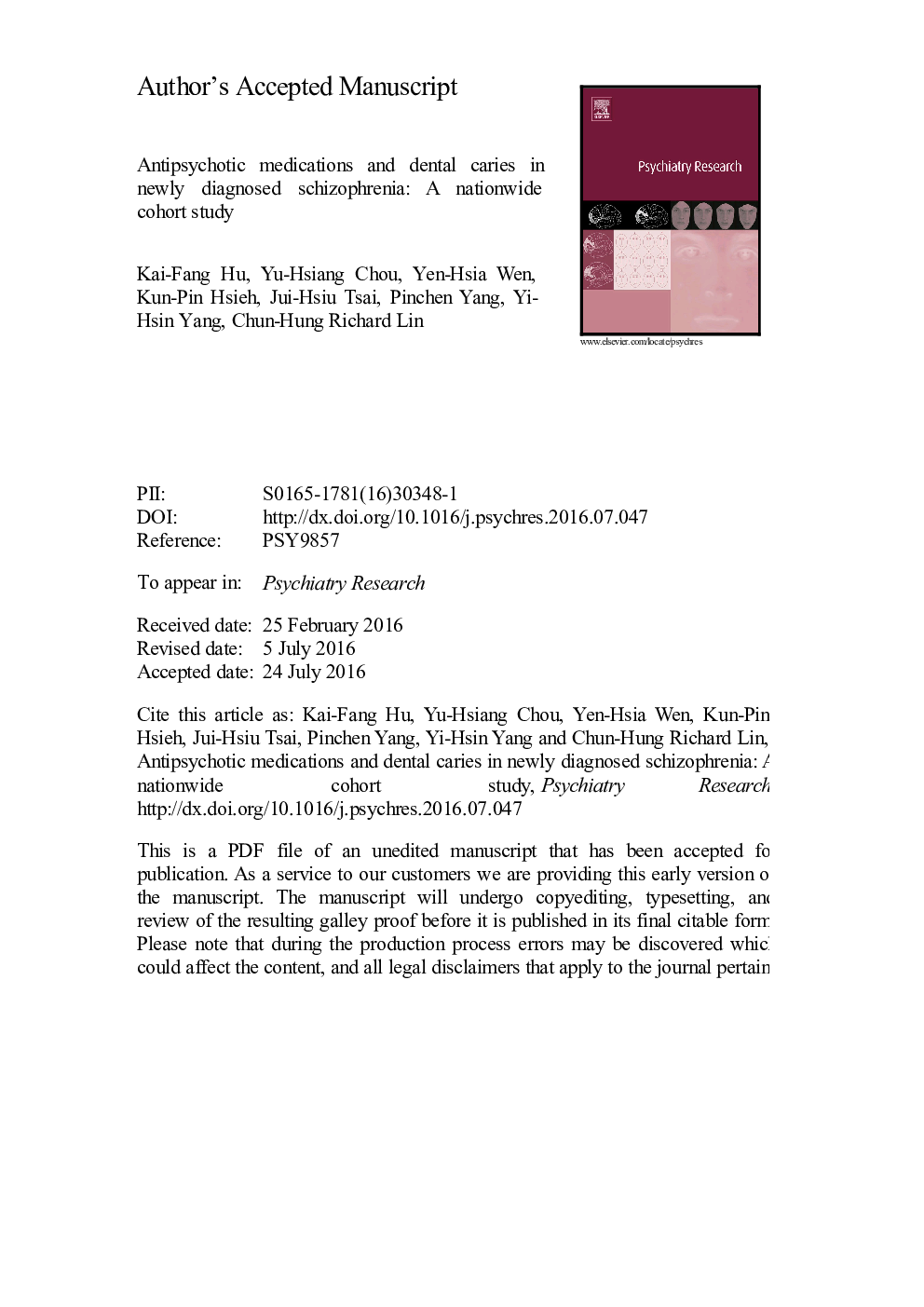| Article ID | Journal | Published Year | Pages | File Type |
|---|---|---|---|---|
| 6812275 | Psychiatry Research | 2016 | 32 Pages |
Abstract
We investigated the association between antipsychotic medications and the risk of dental caries in patients with schizophrenia. We enroled a nationwide cohort of patients with newly diagnosed schizophrenia within 1 year of dental caries development. Exposure to antipsychotics and other medications was categorised according to their type and duration, and the association between exposure and dental caries was assessed through logistic regressions. Of the 3610 patients with newly diagnosed schizophrenia, 2149 (59.5%) exhibited an incidence of treated dental caries. Logistic regression analysis identified a younger age, female sex, high income, a 2-year history of dental caries, and exposure to first-generation antipsychotics, and antihypertensives as independent risk factors for treated dental caries in patients with schizophrenia. Hyposalivation, the adverse effect of first-generation antipsychotics and antihypertensives, was associated with an increased risk of treated dental caries. However, hypersalivation from first-generation antipsychotics for dental caries was associated with a protective factor. These findings suggest that clinicians should pay attention to the aforementioned risk factors for dental caries in patients with schizophrenia, particularly while prescribing first-generation antipsychotics and antihypertensives to such patients.
Related Topics
Life Sciences
Neuroscience
Biological Psychiatry
Authors
Kai-Fang Hu, Yu-Hsiang Chou, Yen-Hsia Wen, Kun-Pin Hsieh, Jui-Hsiu Tsai, Pinchen Yang, Yi-Hsin Yang, Chun-Hung Richard Lin,
